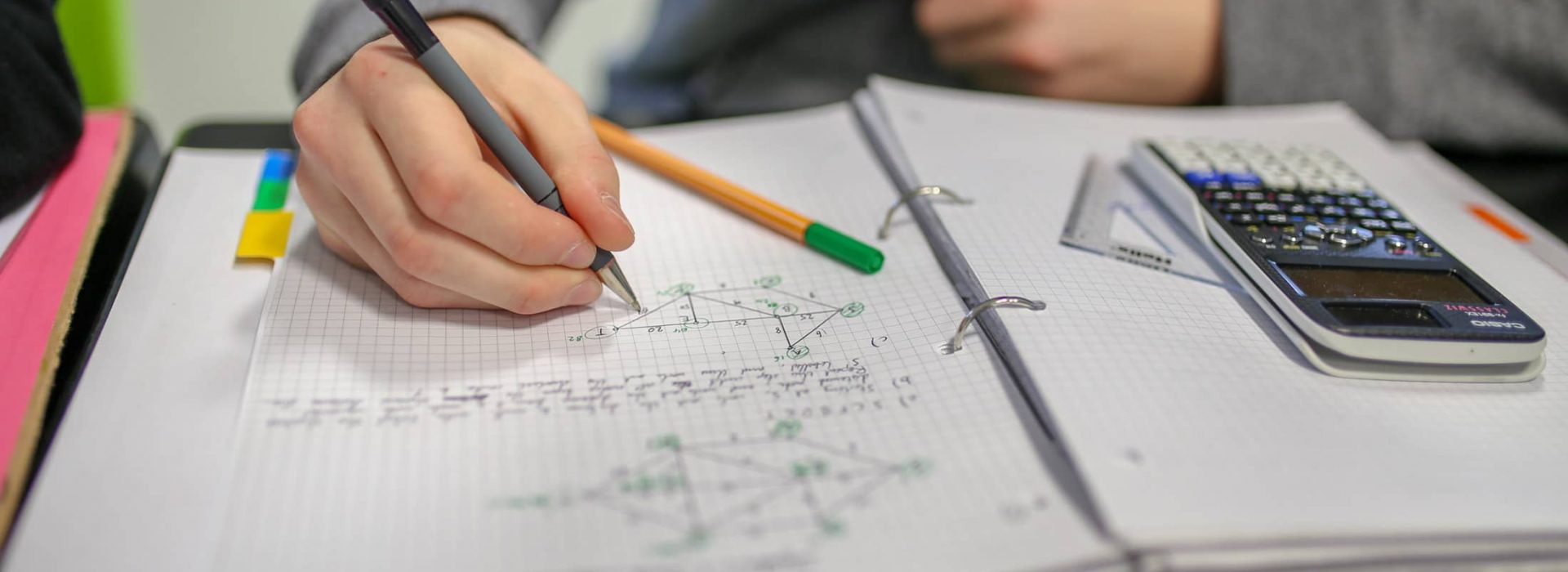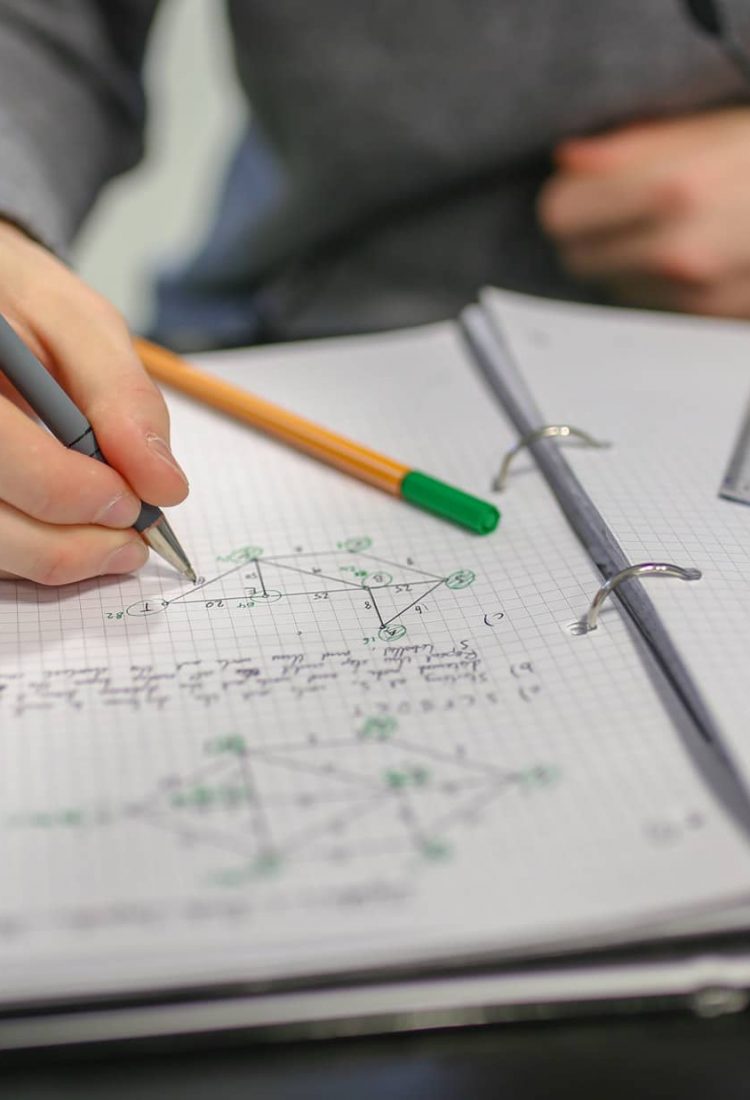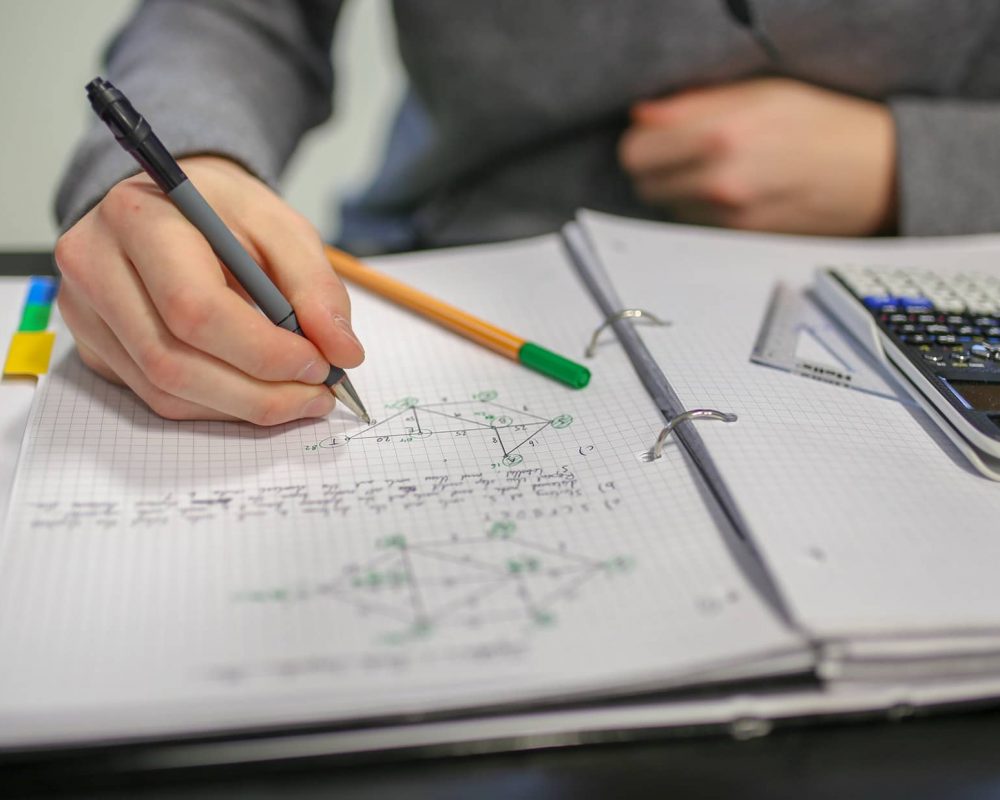Exam Board: Edexcel
What does the course consist of?
The GCSE course builds and extends on the topics covered in Key Stage 3 and includes the study of:
• Number
• Algebra
• Geometry & Measures
• Statistics & Probability
• Ratio & Proportion
Assessment
The assessment consists of three written papers at the end of Year 11.
Each paper is 1.5 hours long and all three papers are equally weighted.
Paper 1 does NOT permit the use of a calculator, whereas Paper 2 and Paper 3 do permit the use of a
scientific calculator.
Each paper can test the whole of the syllabus and on each paper the questions get harder as the candidate
progresses through the paper.
There is NO controlled assessment within Mathematics.
Skills
In addition to the mathematical knowledge and skills all students will develop to meet the requirements of
the GCSE course, mathematics will enable students to develop the following:
• Analytical thinking
• Quantitative reasoning
• Logical arguments
• Communication skills
• Resilience
• Curiosity
• Creativity
Career Opportunities
The mathematical skills that students develop in GCSE will support a number of other subjects at GCSE level
and beyond. They will utilise their mathematical knowledge in everyday life, but also within many of their
other subjects.
Mathematics is relevant to many different degrees and careers, all of which require a strong understanding
of quantitative skills.
• Mathematics in technology, including game design, internet security and communications.
• A good understanding of algebra, graphs and probability are beneficial for those who study Biology,
Chemistry and Physics.
• Psychologists use statistics to analyse relationships between variables and predict behaviours.
• Financial systems and online purchasing systems are also underpinned by Mathematics, relying
heavily on online security and encryption.


